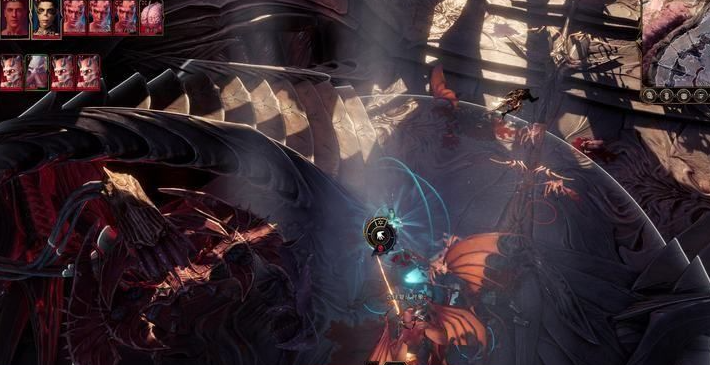We have mentioned a lot of skills in the assessment before, which is the key to various interactions between players in the game.
Complete interactions through skill checks to earn rewards and advance the game.
For example, religious skills are related to intelligence. (For the attributes corresponding to the skills, please refer to the description in the attributes above.)
When players want to find clues from religious information, they will make a religious skill judgment.
The player will roll a 20-sided dice, add the intelligence adjustment value to the result, and then compare it with the religious difficulty (DC) of the information. If it is not less than the DC, it will be considered a success.
If the player’s religious skill is a skilled skill, then the proficiency modifier is added to the result, making it more likely to exceed the DC.
The same goes for other skill checks.
To be considered successful, high attribute adjustment is important, and it is even more important if the skill is a proficient skill.
It is recommended that novices use several of the following skills as their initial proficiency: Medicine, Insight, Perception, Persuasion (Intimidation, Deception), Stealth, and Movement, to facilitate exploration, communication, and combat.
It is unrealistic to include everything, so try to include medical care and sports through background and origin selection.
It is best to have one interaction (lobbying, intimidation, deception).
Insight and perception can help you better discover enemies and secrets, while concealment can make it easier to sneak into operations.
Of course, you don’t have to force yourself to have skills (race and career choices are still the core). With the addition of subsequent characters, the team’s skills will become wider and wider, and they will be able to cope with more judgments.
How many skills a character is familiar with is related to his race and occupation.
For example, humans can be proficient in several more skills than other races, and wanderers will have more proficient skills than other professions.
In battle (you can even click on the turn-based mode at ordinary times and operate by turns to avoid confusion during special complex team operations), all characters act in turn with “rounds” as the time unit (one round is 6 seconds), and some actions can be performed in each round.
Actions are divided into normal actions (directly called actions in the game) and bonus actions. For example, the actions in the red box in the lower part of the picture, blue ones are bonus actions, and brown ones are normal actions.
Or just look at the action description, there is also a distinction between actions/bonus actions, and even differences in green and orange symbols.
A bonus action is a quick, simple action that can usually be performed once per round and can be considered an instantaneous action.
For example, using a weapon to pass over a flame to complete the bonus action “Dip” will give the weapon additional fire damage bonus.
Or jump to a certain place, push away people or objects, take cover, etc.
You can check the category below the action description to see if the action is a bonus action.Ordinary actions are behaviors that consume more time and can usually only be performed once per round.
For example, throwing objects, sprinting (double the movement speed this round), stunning, and assisting (helping teammates who are dying, lying on the ground, or controlled to recover).
Attacking and many uses of magic are normal actions.
The red frame in the interface below mainly represents weapons and attack actions.
The blue frames represent magic, props, and skill actions.
The green frame is the movement bar. Each character has a movement speed (converted into distance based on 6 seconds per round), and the character can freely control the movement during his or her turn.
In other words, if the character can move 25 feet per round, he can distribute that distance however he wants before, during, and after his various actions.
Characters can gain opportunity attack bonuses from different class features, equipment, and feats.
Opportunity attacks are automatically launched when the conditions are met (can be turned off manually by clicking), and are also automatically carried out outside the player’s turn. Opportunity attacks have advantages.

The character enters the dying state after his health drops to 0.
Each round will have an injury check, usually above 10 will show a stable, below 10 will show a deterioration. (You can use various abilities to make the check more favorable)
Pay attention to the icons in the picture. Each time the situation stabilizes or deteriorates, the progress bar will move one step closer to the hexagon (resurrection) or the skull (death), whichever comes first.
You can also use healing and resuscitation magic to treat the wounded more quickly.
